It happened in the afternoon that Ursula sat in the Reunionsaal talking to Loerke.The latter had seemed unhappy lately.He was lively and full of mischievous humour, as usual.
But Ursula had thought he was sulky about something.His partner, too, the big, fair, good-looking youth, was ill at ease, going about as if he belonged to nowhere, and was kept in some sort of subjection, against which he was rebelling.
Loerke had hardly talked to Gudrun.His associate, on the other hand, had paid her constantly a soft, over-deferential attention.Gudrun wanted to talk to Loerke.He was a sculptor, and she wanted to hear his view of his art.And his figure attracted her.There was the look of a little wastrel about him, that intrigued her, and an old man's look, that interested her, and then, beside this, an uncanny singleness, a quality of being by himself, not in contact with anybody else, that marked out an artist to her.He was a chatterer, a magpie, a maker of mischievous word-jokes, that were sometimes very clever, but which often were not.And she could see in his brown, gnome's eyes, the black look of inorganic misery, which lay behind all his small buffoonery.
His figure interested her -- the figure of a boy, almost a street arab.
He made no attempt to conceal it.He always wore a simple loden suit, with knee breeches.His legs were thin, and he made no attempt to disguise the fact: which was of itself remarkable, in a German.And he never ingratiated himself anywhere, not in the slightest, but kept to himself, for all his apparent playfulness.
Leitner, his companion, was a great sportsman, very handsome with his big limbs and his blue eyes.Loerke would go toboganning or skating, in little snatches, but he was indifferent.And his fine, thin nostrils, the nostrils of a pure-bred street arab, would quiver with contempt at Leitner's splothering gymnastic displays.It was evident that the two men who had travelled and lived together, sharing the same bedroom, had now reached the stage of loathing.Leitner hated Loerke with an injured, writhing, impotent hatred, and Loerke treated Leitner with a fine-quivering contempt and sarcasm.Soon the two would have to go apart.
Already they were rarely together.Leitner ran attaching himself to somebody or other, always deferring, Loerke was a good deal alone.Out of doors he wore a Westphalian cap, a close brown-velvet head with big brown velvet flaps down over his ears, so that he looked like a lop-eared rabbit, or a troll.His face was brown-red, with a dry, bright skin, that seemed to crinkle with his mobile expressions.His eyes were arresting -- brown, full, like a rabbit's, or like a troll's, or like the eyes of a lost being, having a strange, dumb, depraved look of knowledge, and a quick spark of uncanny fire.Whenever Gudrun had tried to talk to him he had shied away unresponsive, looking at her with his watchful dark eyes, but entering into no relation with her.He had made her feel that her slow French and her slower German, were hateful to him.As for his own inadequate English, he was much too awkward to try it at all.But he understood a good deal of what was said, nevertheless.And Gudrun, piqued, left him alone.
This afternoon, however, she came into the lounge as he was talking to Ursula.His fine, black hair somehow reminded her of a bat, thin as it was on his full, sensitive-looking head, and worn away at the temples.
He sat hunched up, as if his spirit were bat-like.And Gudrun could see he was making some slow confidence to Ursula, unwilling, a slow, grudging, scanty self-revelation.She went and sat by her sister.
He looked at her, then looked away again, as if he took no notice of her.But as a matter of fact, she interested him deeply.
`Isn't it interesting, Prune,' said Ursula, turning to her sister, `Herr Loerke is doing a great frieze for a factory in Cologne, for the outside, the street.'
She looked at him, at his thin, brown, nervous hands, that were prehensile, and somehow like talons, like `griffes,' inhuman.
`What in? ' she asked.
` Aus was? ' repeated Ursula.
` Granit, ' he replied.
It had become immediately a laconic series of question and answer between fellow craftsmen.
`What is the relief?' asked Gudrun.
`Alto relievo.'
`And at what height?'
It was very interesting to Gudrun to think of his making the great granite frieze for a great granite factory in Cologne.She got from him some notion of the design.It was a representation of a fair, with peasants and artisans in an orgy of enjoyment, drunk and absurd in their modern dress, whirling ridiculously in roundabouts, gaping at shows, kissing and staggering and rolling in knots, swinging in swing-boats, and firing down shooting galleries, a frenzy of chaotic motion.
There was a swift discussion of technicalities.Gudrun was very much impressed.
`But how wonderful, to have such a factory!' cried Ursula.`Is the whole building fine?'
`Oh yes,' he replied.`The frieze is part of the whole architecture.
Yes, it is a colossal thing.'
Then he seemed to stiffen, shrugged his shoulders, and went on:
`Sculpture and architecture must go together.The day for irrelevant statues, as for wall pictures, is over.As a matter of fact sculpture is always part of an architectural conception.And since churches are all museum stuff, since industry is our business, now, then let us make our places of industry our art -- our factory-area our Parthenon, ecco! '
Ursula pondered.
`I suppose,' she said, `there is no need for our great works to be so hideous.'
Instantly he broke into motion.















